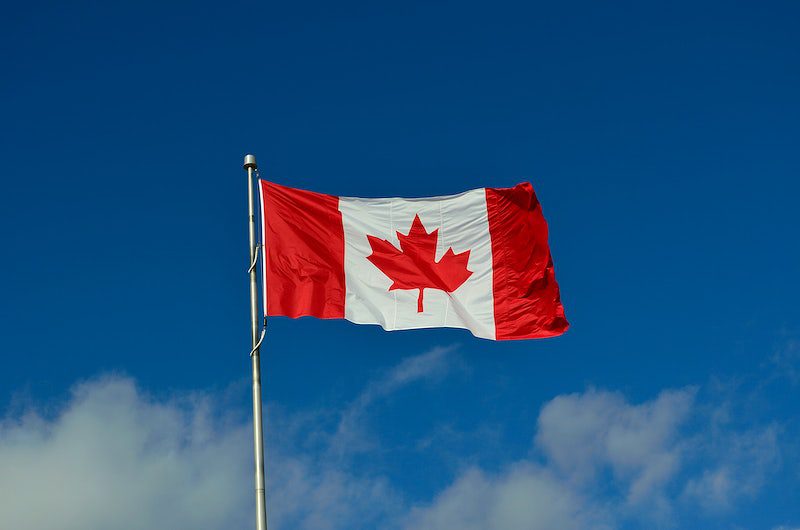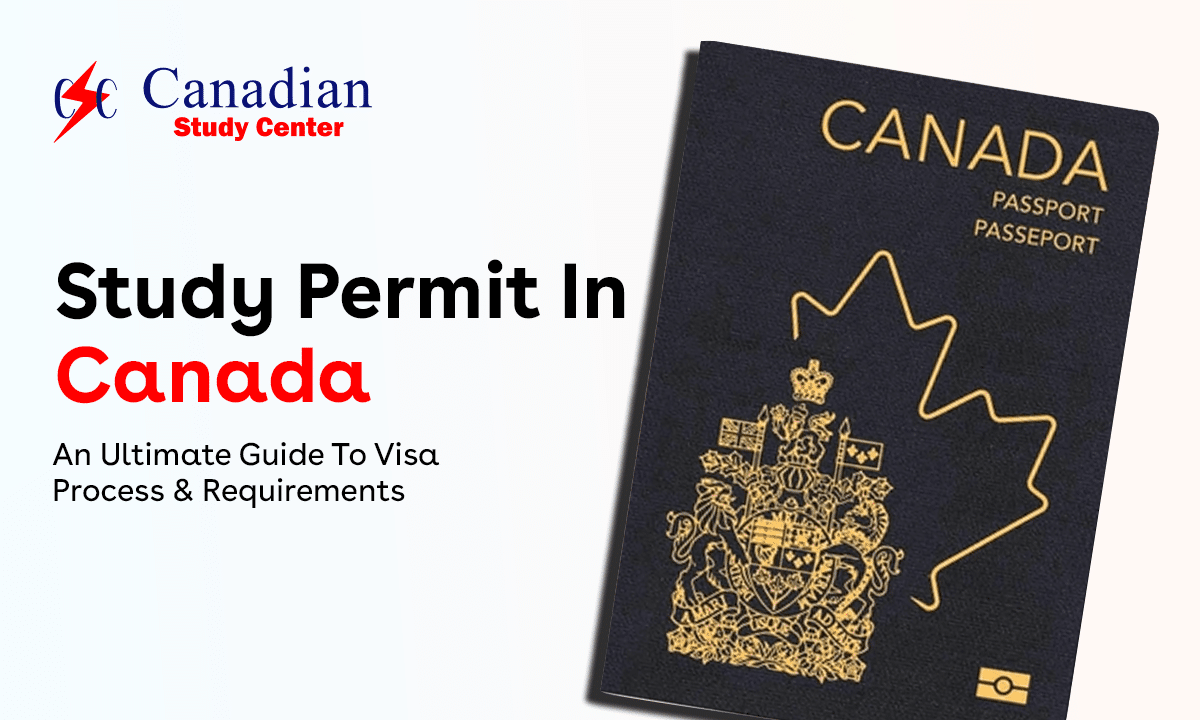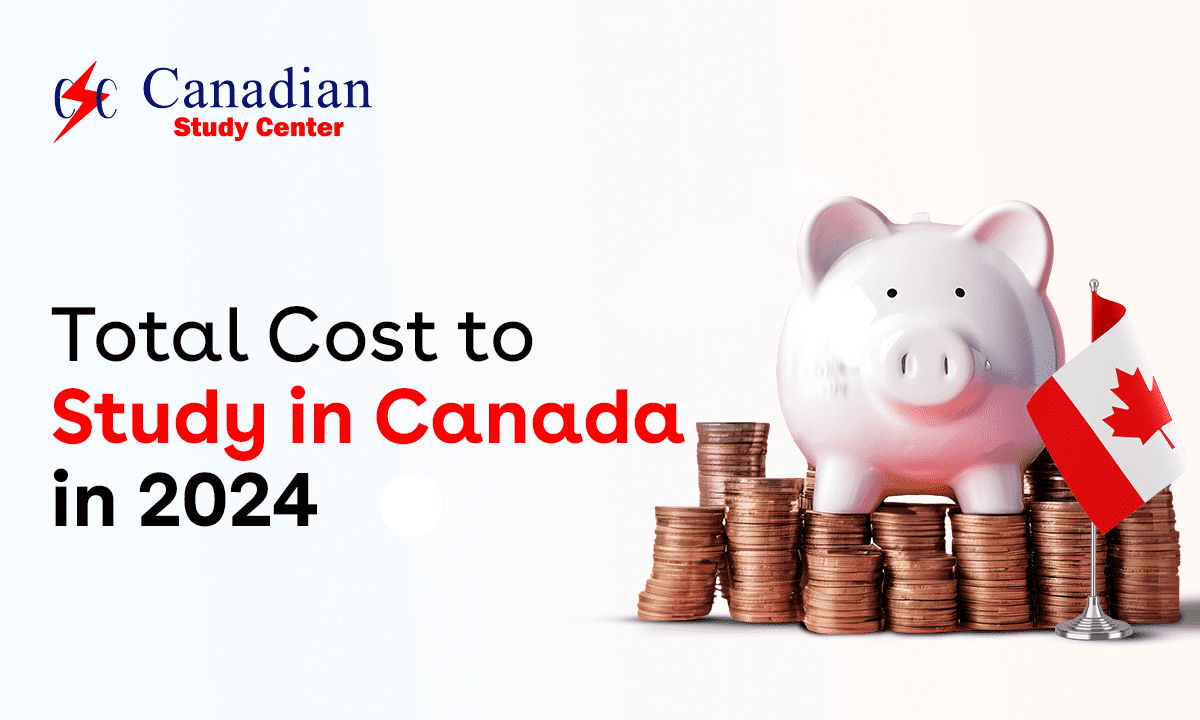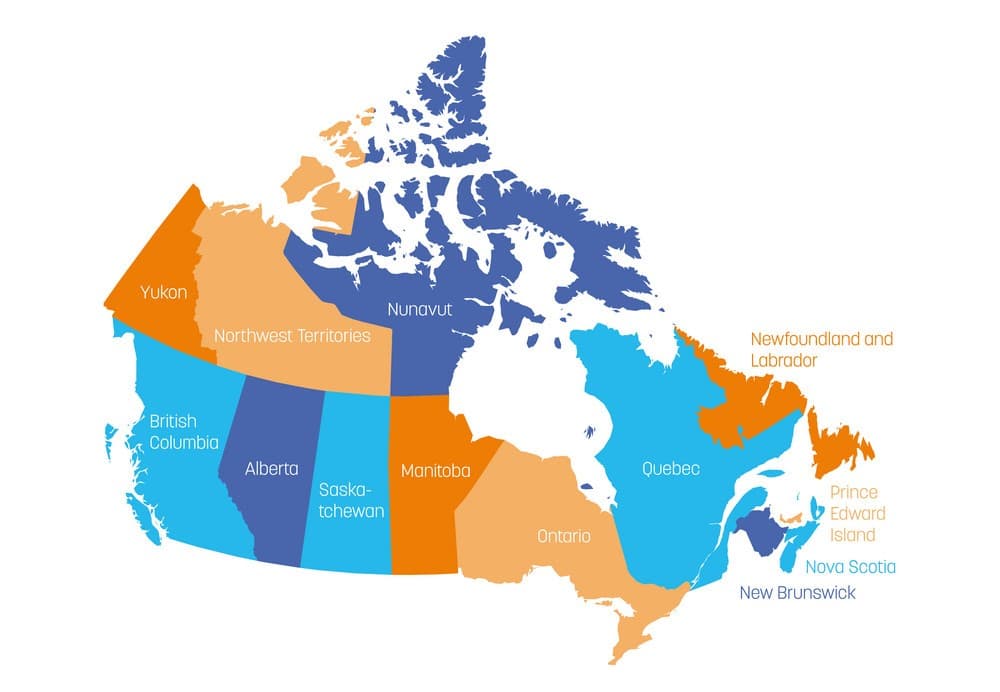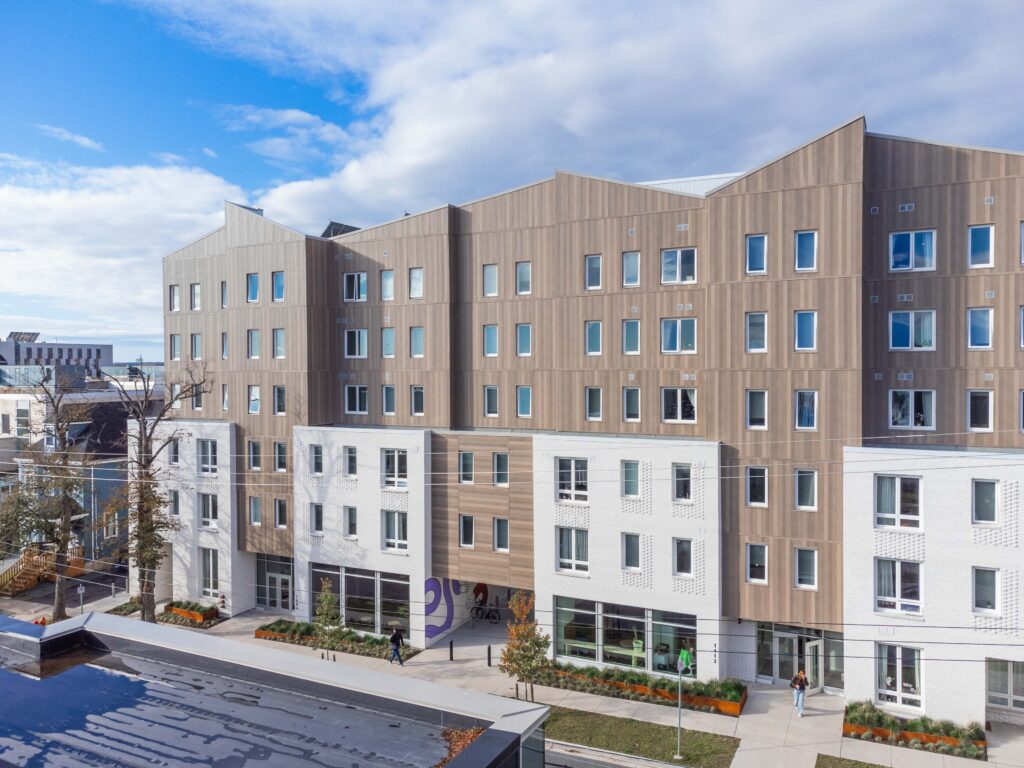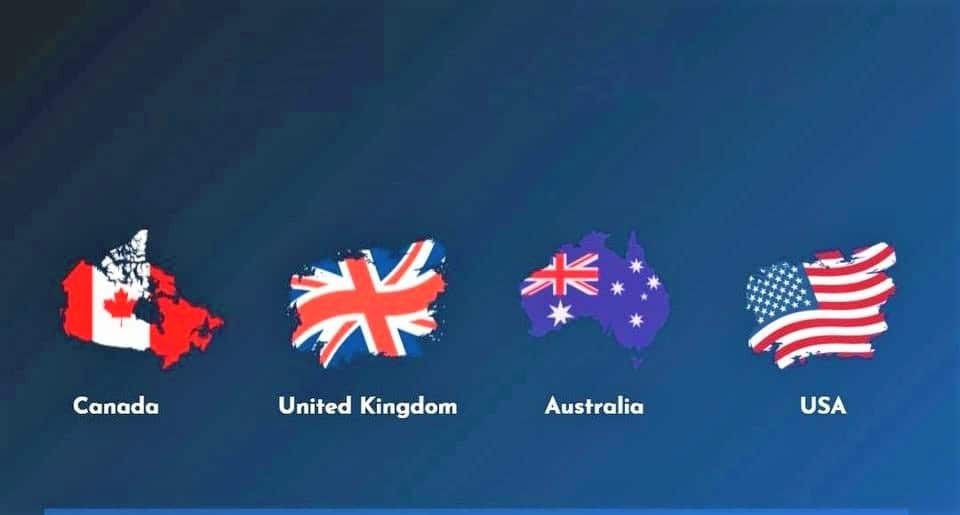Introduction: Study In Canada After 12th
Have you recently finished your 12th grade? Congratulations! What are your plans now that you’ve completed this milestone? Study in Canada after 12th has become an increasingly popular option for Nepali students.
Canada offers a high-quality education system, a diverse culture, and excellent post-study work opportunities, making it an attractive destination for further studies. The period after completing 12th grade is a crucial time to decide on your career path. So, with this blog, we help you to make an informed decision.
Below we have discussed detailed information on why Canada is a top choice for Nepali students, highlighting the best courses available after 12th grade, and covering diploma courses for arts, science, management, and medical fields. It also includes practical details on the admission process, costs, and more.
Reasons to Study in Canada after 12th
When you choose to study in Canada after 12th, you’re making a significant investment in your future. Canada welcomes hundreds of thousands of international students from around the world every year.

Here is why Canada stands out as an exceptional destination for international education:
Renowned Quality of Life
Canada offers a high standard of living, with respect for human rights, equality, and diversity in a peaceful, stable society. According to US news and world report, it is ranked 3rd globally for best quality of life.
Flexible and High-Quality Education Options
Canada has a renowned, high-quality education system with over 8,000 colleges and 16,000 university programs. It has 7 universities ranked among the top 200 globally.
Pathway to Permanent Residency
Canada offers various immigration pathways for international students to transition to permanent residency, such as the Canadian Experience Class and Provincial Nominee Program, making it an attractive destination for those looking to build a future in the country.
Feel Welcome in a Diverse and Inclusive Environment
Canada is an open, safe, and culturally diverse society, home to over 250 ethnic origins and 200+ languages.
Affordable Option
Canada provides scholarships and work opportunities to help fund education if you want to study in Canada after 12th. Tuition fees are generally lower than in countries like Australia, the UK, and the US.
Long-Term Return on Your Investment
A Canadian education can significantly enhance career prospects, with 60% of international students becoming permanent residents within 10 years.
Memorable Adventures
Canada offers a unique blend of urban and rural experiences, with vibrant culture, social life, and beautiful natural landscapes across its provinces and territories.
Access to Cutting-Edge Research and Innovation
Canada is a global leader in research and innovation, providing students access to cutting-edge facilities and opportunities to participate in groundbreaking projects. Institutions collaborate with industry leaders to offer practical, real-world experience.
Vibrant Student Life and Extracurricular Activities
Canadian campuses offer a vibrant student life with numerous extracurricular activities, clubs, and organizations. Students can engage in sports, arts, volunteer work, and cultural events, enriching their university experience and building a strong network.
Emphasis on Work-Life Balance
Canadian culture places importance on maintaining a healthy balance between work and personal life. This allows students to have time to pursue their interests and take care of their well-being, in addition to their academic responsibilities. This balanced approach helps create a healthy and productive learning environment for students.
Top Courses to Study in Canada After 12th
If you want to study in Canada after 12th, you have a lot of choices. Whether you choose to study diploma courses, one-year certificate programs, or bachelor’s degree, you have the freedom to select from diverse courses and fields.

Here are the top courses to study in Canada after 12th based on popularity and demand.
Engineering and Technology
Engineering and technology is the most popular course to study in Canada after 12th. This field focuses on the application of scientific principles to design and build machines, structures, and other items.
Here are further choices within the engineering and technology program.
- Computer Engineering
- Mechanical Engineering
- Electrical Engineering
- Civil Engineering
- Software Engineering
Business and Management
Business and Management courses teach skills needed for running businesses, managing resources, and strategic planning. Further specialization under the popular business courses among +2 students are:
- Business Administration
- International Business
- Marketing
- Finance
- Entrepreneurship
Health Sciences
Health sciences courses cover various fields related to improving health and treating diseases. The most common specialized courses in health science are as follows:
- Nursing
- Pharmacy
- Kinesiology
- Public Health
- Medical Laboratory Science
Computer Science and IT
Computer Science and IT courses involve the study of computer systems, programming, and data management. In today’s world of modern digital technology and AI, it has been a most sought-after and in-demand course. Some specializations under this are:
- Computer Science
- Information Technology
- Data Science
- Cybersecurity
- Artificial Intelligence
Natural Sciences
Another popular course among +2 students studying in Canada is natural science. This course explores the physical world through biology, chemistry, physics, and environmental science. The most common specializations under natural sciences are:
- Biology
- Biotechnology
- Chemistry
- Environmental Science
- Physics
Arts and Humanities
Arts and Humanities students study human culture, including history, literature, and philosophy. The courses available can be:
- Psychology
- Sociology
- History
- English Literature
- Philosophy
Social Sciences
Students of this course examine society and human behavior through disciplines like psychology, sociology, and economics.
- Political Science
- Economics
- Anthropology
- International Relations
- Human Geography
Media and Communications
Media students focus on the study of how information is conveyed and the impact of media on society. Common media specialized courses are:
- Journalism
- Media Studies
- Public Relations
- Film and Television
- Digital Media
Hospitality and Tourism
Hospitality is another top course that prepares students for careers in hotel management, travel, and event planning. Here are some specializations:
- Hotel Management
- Tourism Management
- Culinary Arts
- Event Management
- Travel and Tourism
Fine Arts
Fine Arts courses encourage creative expression through visual arts, music, dance, and theater. The popular courses under this are:
- Graphic Design
- Performing Arts
- Visual Arts
- Music
- Dance
Diploma Courses in Canada After 12th for International Students
Diploma is the most common choice for students wanting to study in Canada after 12th because of its many advantages.

Typically, diploma courses in Canada take 1-2 years to complete and provide a more practical, career-focused education compared to traditional university degrees.
Canadian institutions are renowned for their high standards of education and state-of-the-art facilities for diplomas. Many diploma programs include co-op work placements, providing valuable hands-on experience and industry connections.
Additionally, the cost of diploma courses is generally lower than that of degree programs, making them an affordable option.
Graduates of Canadian diploma programs benefit from the country’s strong job market and post-study work opportunities, such as the Post-Graduation Work Permit (PGWP), which allows them to gain Canadian work experience and potentially transition to permanent residency.
Therefore, diploma programs in Canada can be a great pathway to start your career after 12th.
Popular Diploma Courses To Study In Canada After 12th
- Business Administration
- Mechanical Engineering Technology
- Hospitality and Tourism Management
- Broadcast Television and Film Production
- Aviation Technician – Aircraft Maintenance
- Instrumentation Engineering Technology
- Petroleum Engineering Technology
- Electrical Engineering Technology
- Software Engineering Technology
- Automotive Service Technology
- Network Systems Technology
- Renewable Energy Technician
- Computer Systems Technician
- Early Learning and Child Care
- Architectural Technology
- Accounting and Payroll
- Culinary Management
- Office Administration
- Health Care Aide
- Human Services
- Graphic Design
- Biotechnology
- Journalism
- Fine Arts
- Paralegal
Best Diploma Courses after 12th Commerce

Canada offers a wide range of diploma courses after 12th in business management who have completed their 12th grade in Commerce.
These management courses in Canada are designed to provide practical skills and knowledge that can lead to various career opportunities. Here are some of the best diploma courses available:
Diploma in Business Administration
The Diploma in Business Administration focuses on the fundamentals of business, including management, marketing, accounting, and finance.
This program typically lasts between 1-2 years and prepares students for careers such as business analysts, marketing coordinators, financial assistants, and office managers.
Diploma in Accounting and Finance
The Diploma in Accounting and Finance provides in-depth knowledge of accounting principles, financial management, taxation, and auditing. Lasting between one to two years, this course equips students for roles such as accountants, financial analysts, payroll administrators, and tax advisors.
Diploma in Marketing Management
The Diploma in Marketing Management covers various aspects of marketing, such as market research, consumer behavior, digital marketing, and advertising. Over one to two years, students gain the skills needed to become marketing coordinators, brand managers, sales executives, and digital marketing specialists.
Diploma in International Business
The Diploma in International Business focuses on global business strategies, international trade, cross-cultural management, and global marketing. This program, which lasts one to two years, prepares students for careers as international trade coordinators, export/import managers, business development officers, and global supply chain managers.
Diploma in Human Resource Management
The Diploma in Human Resource Management provides knowledge of recruitment, employee relations, training and development, and compensation management. Typically completed in one to two years, this course prepares students for roles such as HR assistants, recruitment coordinators, training and development officers, and HR consultants.
Diploma in Supply Chain Management
The Diploma in Supply Chain Management covers logistics, procurement, inventory management, and supply chain strategy. This one to two-year program prepares students for careers as supply chain coordinators, logistics managers, procurement officers, and operations managers.
Diploma in Hospitality and Tourism Management
The Diploma in Hospitality and Tourism Management provides skills and knowledge in hospitality operations, tourism management, event planning, and customer service. Typically lasting one to two years, this course prepares students for roles such as hotel managers, event coordinators, tourism marketing managers, and customer service managers.
Diploma in E-commerce and Digital Marketing
The Diploma in E-commerce and Digital Marketing focuses on online business strategies, digital marketing techniques, social media management, and e-commerce platforms. Over one to two years, students gain the expertise needed to become e-commerce managers, digital marketing specialists, social media coordinators, and online sales managers.
Best Diploma Courses for Science Students
Studying in Canada after 12th is beneficial for students who have completed their 12th grade in Science as Canadian institutions offer a variety of diploma courses that provide specialized knowledge and practical skills in diverse fields.

Below is an overview of some of the best diploma courses for science students to study in Canada after 12th.
Diploma in Computer Science
The Diploma in Computer Science provides comprehensive knowledge in programming, software development, data structures, and algorithms. This program, lasting one to two years, prepares students for careers such as software developers, systems analysts, IT support specialists and web developers.
Diploma in Engineering Technology
The Diploma in Engineering Technology covers various branches of engineering, including mechanical, electrical, civil, and electronics engineering. Over one to two years, students gain practical skills for roles such as engineering technicians, project coordinators, quality control inspectors, and technical sales specialists.
Diploma in Health Sciences
The Diploma in Health Sciences offers a foundation in medical and health-related fields, including anatomy, physiology, biochemistry, and health care practices. Typically completed in one to two years, this course prepares students for careers as medical laboratory technicians, health care assistants, and clinical research coordinators.
Diploma in Biotechnology
The Diploma in Biotechnology focuses on the application of biological sciences to develop products and technologies. This one to two-year program prepares students for roles such as lab technicians, research assistants, quality control analysts, and biomanufacturing specialists.
Diploma in Environmental Science
The Diploma in Environmental Science covers topics such as ecology, environmental chemistry, pollution control, and sustainable practices. Over one to two years, students are equipped for careers as environmental technicians, conservation officers, environmental consultants, and waste management coordinators.
Diploma in Pharmaceutical Sciences
The Diploma in Pharmaceutical Sciences provides knowledge of pharmacology, medicinal chemistry, drug development, and pharmaceutical regulations. This one to two-year course prepares students for roles such as pharmacy technicians, pharmaceutical sales representatives, quality control analysts, and research assistants.
Diploma in Information Technology (IT)
The Diploma in Information Technology focuses on network administration, cybersecurity, database management, and IT support. Lasting between one to two years, this program equips students for careers as network administrators, cybersecurity analysts, database administrators, and IT support technicians.
Diploma in Robotics and Automation
The Diploma in Robotics and Automation covers the design, development, and maintenance of robotic systems and automated processes. Typically completed in one to two years, this course prepares students for roles such as robotics technicians, automation specialists, maintenance engineers, and system integrators.
Diploma in Renewable Energy
The Diploma in Renewable Energy focuses on sustainable energy sources, including solar, wind, and biomass technologies. This one to two-year program prepares students for careers as renewable energy technicians, energy auditors, sustainability consultants, and project coordinators.
Diploma courses after 12th Arts

Similarly, some of the best diploma courses to study in Canada after 12th for Arts students are:
Diploma in Graphic Design
The Diploma in Graphic Design focuses on visual communication, covering topics such as typography, digital illustration, web design, and branding. Typically lasting one to two years, this course prepares students for careers as graphic designers, web designers, digital illustrators, and branding specialists.
Diploma in Journalism and Mass Communication
The Diploma in Journalism and Mass Communication provides a comprehensive understanding of media, including news writing, broadcasting, digital media, and public relations. Over one to two years, students gain the skills needed for roles such as journalists, media analysts, public relations officers, and content creators.
Diploma in Early Childhood Education
The Diploma in Early Childhood Education focuses on child development, learning theories, curriculum planning, and classroom management. Over one to two years, students are equipped for careers as early childhood educators, daycare supervisors, and preschool teachers.
Diploma in Social Work
The Diploma in Social Work provides knowledge of social services, community development, counseling, and advocacy. This one to two-year course prepares students for roles such as social work assistants, community service workers, case managers, and youth workers.
Diploma in Fine Arts
The Diploma in Fine Arts offers training in various art forms, including painting, sculpture, drawing, and multimedia arts. Typically lasting one to two years, this program prepares students for careers as artists, art instructors, gallery assistants, and curators.
Diploma in Event Management
The Diploma in Event Management covers event planning, marketing, budgeting, and logistics. Over one to two years, students gain the skills needed to become event coordinators, wedding planners, conference organizers, and festival managers.
Diploma in Interior Design
The Diploma in Interior Design focuses on space planning, design principles, materials, and furnishings. This one to two-year program prepares students for careers as interior designers, space planners, design consultants, and decor specialists.
Diploma in Film and Television Production
The Diploma in Film and Television Production provides training in screenwriting, directing, cinematography, editing, and production management. Typically completed in one to two years, this course prepares students for roles such as filmmakers, production assistants, editors, and screenwriters.
Medical Diploma Courses After 12th
Studying medical diploma courses after 12th is another fruitful choice for international students.

Here are some specializations to study in Canada after 12th for students with medical backgrounds.
Diploma in Practical Nursing
The Diploma in Practical Nursing prepares students to become Licensed Practical Nurses (LPNs). The program covers patient care, pharmacology, anatomy, and medical-surgical nursing. This course typically lasts two years and equips graduates for roles in hospitals, clinics, long-term care facilities, and community health settings.
Diploma in Medical Laboratory Technology
The Diploma in Medical Laboratory Technology trains students in laboratory testing, diagnostic procedures, and laboratory management. This two-year program prepares graduates for careers as medical laboratory technicians or technologists, working in hospitals, diagnostic laboratories, and research facilities.
Diploma in Pharmacy Technician
The Diploma in Pharmacy Technician focuses on pharmaceutical sciences, drug dispensing, and pharmacy operations. Over one to two years, students gain the skills needed to work as pharmacy technicians in retail pharmacies, hospitals, and other healthcare settings.
Diploma in Health Information Management
The Diploma in Health Information Management covers medical coding, health data management, and information technology. This two-year program prepares students for careers as health information managers, medical coders, and data analysts in hospitals, clinics, and healthcare organizations.
Diploma in Occupational Health and Safety
The Diploma in Occupational Health and Safety provides knowledge on workplace safety, health regulations, and risk management. This one to two-year course prepares students for roles as occupational health and safety officers, inspectors, and coordinators in various industries.
Diploma in Dental Hygiene
The Diploma in Dental Hygiene trains students in oral health assessment, preventive dentistry, and patient care. Typically lasting two years, this program prepares graduates for careers as dental hygienists in dental clinics, hospitals, and community health centers.
Diploma in Medical Office Administration
The Diploma in Medical Office Administration focuses on administrative skills, medical terminology, and healthcare office procedures. Over one to two years, students are equipped for careers as medical office administrators, receptionists, and administrative assistants in healthcare settings.
Diploma in Physiotherapy Assistant
The Diploma in Physiotherapy Assistant provides training in therapeutic exercises, patient care, and rehabilitation techniques. This one to two-year course prepares students for roles as physiotherapy assistants, working under the supervision of licensed physiotherapists in hospitals, rehabilitation centers, and clinics.
Top Colleges and Universities To Study In Canada After 12th
The colleges and universities to study in Canada after 12th that offer top-notch diploma programs are renowned for their academic excellence, industry partnerships, and student support services.
Here are some of the top colleges and universities in Canada that are particularly well-suited for international students seeking diploma-level education after their 12th grade.
Colleges To Study In Canada After 12th

- Seneca College
- Humber College
- George Brown College
- Centennial College
- Fanshawe College
- Douglas College
- Conestoga College
- Algonquin College
- Bow Valley College
- Sault College
Universities To Study In Canada After 12th

- University of Alberta
- Western University
- University of Waterloo
- Thompson Rivers University
- Lakehead University
- York University
- University of Canada West
- Kwantlen Polytechnic University
- University of Winnipeg
- University of Prince Edward Island
Admission Process to Study in Canada After 12th
The admission process to study in Canada after 12th grade involves several steps. To apply for a diploma or bachelor’s degree at a Canadian educational institution, you must first check the eligibility requirements of your desired course and college/university.
You will need to take the required IELTS scores as part of the application process. You can then apply online on the official university website.
After submitting your application, you will need to await the university’s response. Some admission committees may want to interview with you.
Once you receive confirmation of your bachelor’s admission, you can proceed to complete the necessary formalities to get a Canada study permit and travel.
Cost to Study in Canada After 12th
The total cost of studying in Canada for international students after 12th grade can be broken down as follows:
Tuition and Visa Costs for Canada
The main expense is the tuition fees in Canada, which can range from CAD 11,000 to CAD 30,000 per year, depending on the course you choose.
There are also application fees, which can be between CAD 50 to CAD 200. Additionally, the student visa application fee is approximately CAD 150.
Cost of Living in Canada
Beyond the tuition fees, you will need to budget for your living expenses in Canada, which include:
Rent: CAD 1,000 to CAD 1,500 per month
Transportation: CAD 90 per month
Food: CAD 100 to CAD 500 per month
Other expenses: CAD 500 per month
Conclusion
Studying in Canada after 12th grade is an exceptional opportunity for international students, especially those from Nepal.
With a wide range of bachelor’s degree programs, diploma courses, and scholarship options, Canada offers choices to the diverse academic interests and financial needs of students. The admission process is streamlined and the visa procedures are manageable with the right guidance.
FAQs on Study In Canada After 12th For Nepali Students
1. Why study in Canada after 12th?
Studying in Canada after 12th is an excellent choice because Canada offers high-quality education, diverse programs, and excellent post-graduation opportunities like work permits and immigration pathways.
2. How much does it cost to study in Canada after 12th?
The average cost to study in Canada after 12th range from CAD 15,000 to CAD 35,000 per year including tuition and living expenses.
3. Which course is best after 12th in Canada?
There is no one course best in Canada but the most popular and demanding courses after 12th in Canada include engineering, business, computer science, and healthcare-related fields.
4. Is going to Canada worth it after 12th?
Yes, Canada is definitely worth it after 12th because of its quality education, safe environment, post-graduation work options, and potential for permanent residency.
5. How much percentage is required in 12th for Canada?
The minimum percentage required in 12th for Canada is 65% or higher for humanities, and 70-80% or higher for commerce and science programs if you are applying for Universities. You can get into some diploma programs even if you have slightly lower percentage than the 70%.
6. Can 12th pass apply for Canada?
Yes, a 12th pass student can apply for Canada study visa with the right qualifications, English proficiency, and financial support.
7. Is 12th marks important for Canada student visa?
Yes, a good marks in your 12th demonstrate a strong academic performance which can strengthen your visa application.
8. Is gap accepted in Canada after 12th?
Yes, gap years are accepted in Canada after 12th but you may need to explain the gap and demonstrate productive use of your time with some relevant work experience.
9. Which country is best after 12th?
Best country to go after 12th for abroad studies are Canada, USA, Australia, UK and Germany. Depending on the various factors like cost, welcoming environment, climate preferences, post-graduate work opportunities and permanent residency opportunities the choices for the best may differ from individual to individual.
10. How much money is required to study in Canada after 12th?
The average money required to study in Canada after 12th is approximately CAD 20,000 to CAD 40,000 per year for tuition and living expenses, depending on location and lifestyle. The main expense is the tuition fees in Canada, which can range from CAD 11,000 to CAD 30,000 per year, depending on the course you choose.


